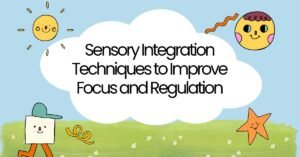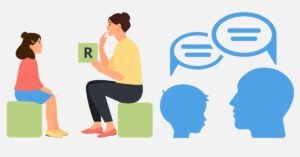Understanding the Distinction: Speech Delay vs Autism
When it comes to children’s development, it’s crucial to recognize the difference between speech delay vs autism. While both conditions can affect communication skills, understanding the differences is key to providing appropriate support and intervention. Let’s explore what these conditions entail and how you can make informed decisions for your child.
Speech Delay: Unlocking the Basics
Speech delay refers to a situation where a child’s language skills develop at a slower pace than expected for their age. It’s not uncommon for children to experience temporary delays, but prolonged issues may indicate underlying concerns.
Signs and Symptoms of Speech Delay
Identifying speech delay involves recognizing certain signs and symptoms. These may include:
- Limited vocabulary for their age
- Difficulty forming sentences
- Inability to articulate sounds properly
- Struggling to understand or follow instructions
Causes of Speech Delay
Several factors can contribute to speech delay, including:
- Hearing impairments
- Intellectual disabilities
- Oral impairments (e.g., cleft palate)
- Environmental factors (e.g., limited exposure to language)
How Can Speech Therapy Help?
Early intervention is crucial in addressing speech delays. Speech-language pathologists can work wonders with children to help them overcome communication challenges.
What is Autism Spectrum Disorder (ASD)?
Autism, or autism spectrum disorder (ASD), is a developmental condition characterized by challenges in social interaction, communication, and behavior. While speech delay can be a component of autism, not all children with speech delay have autism.
Is it Autism or Speech Delay? Signs to Watch For
Autism manifests differently in each individual, but common signs may include:
- Difficulty making eye contact
- Speech delay or other language skill differences
- Repetitive behaviors or movements
- Sensory sensitivities (e.g., to light, sound, or texture)
- Difficulty understanding and expressing emotions
Seeking Professional Guidance
If you suspect that your child may be experiencing speech delay or autism, seeking guidance from healthcare professionals, such as pediatricians, speech therapists, or developmental specialists, is crucial. Early intervention improves the lives of children significantly.
Conclusion: Navigating the Path Forward
While speech delay and autism can both impact a child’s communication abilities, they are distinct conditions. By understanding these differences, seeking appropriate support, and advocating for your child, you can empower them to reach their full potential.







